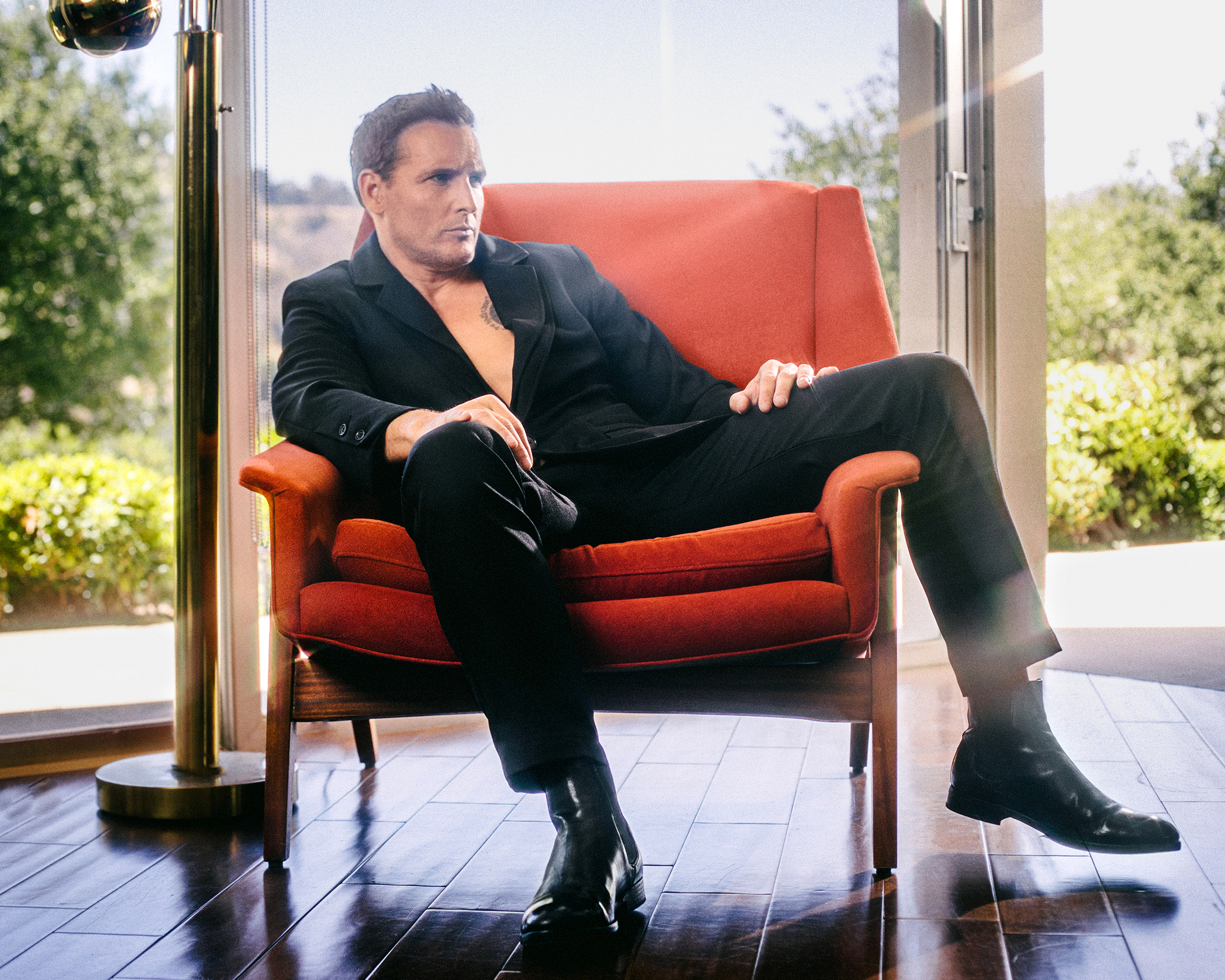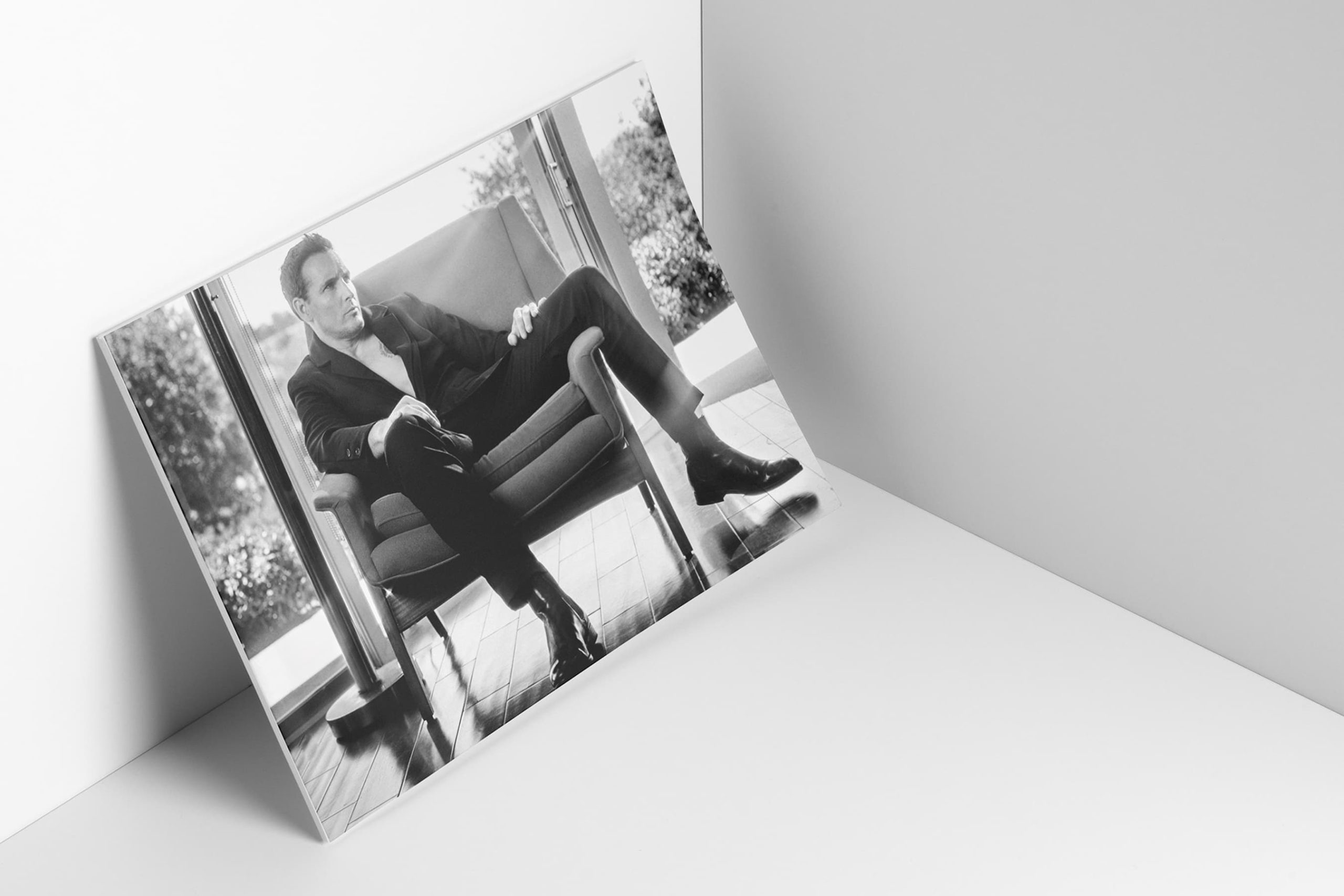By Angela Baidoo
First appearing in our collective fashion consciousness via a nineties Versace Ad campaign, starring alongside Christy Turlington, Peter Facinelli has gone on to feature in Twilight, one of the most successful book adaptations and film franchises of the 2000s, as well as popular TV series Nurse Jackie and Glee. Developing his skills in Hollywood over the last two decades, both in front of and behind the camera as an actor, producer, writer, and director, with his latest project, The Unbreakable Boy, Facinelli is backing this uplifting tale for its unique take on individuality and resilience.
Speaking to The Impression he discussed the many ways in which he uses his personal style to take risks, the transformative nature of costume design on film, and the breaking down of gender norms within the fashion industry.
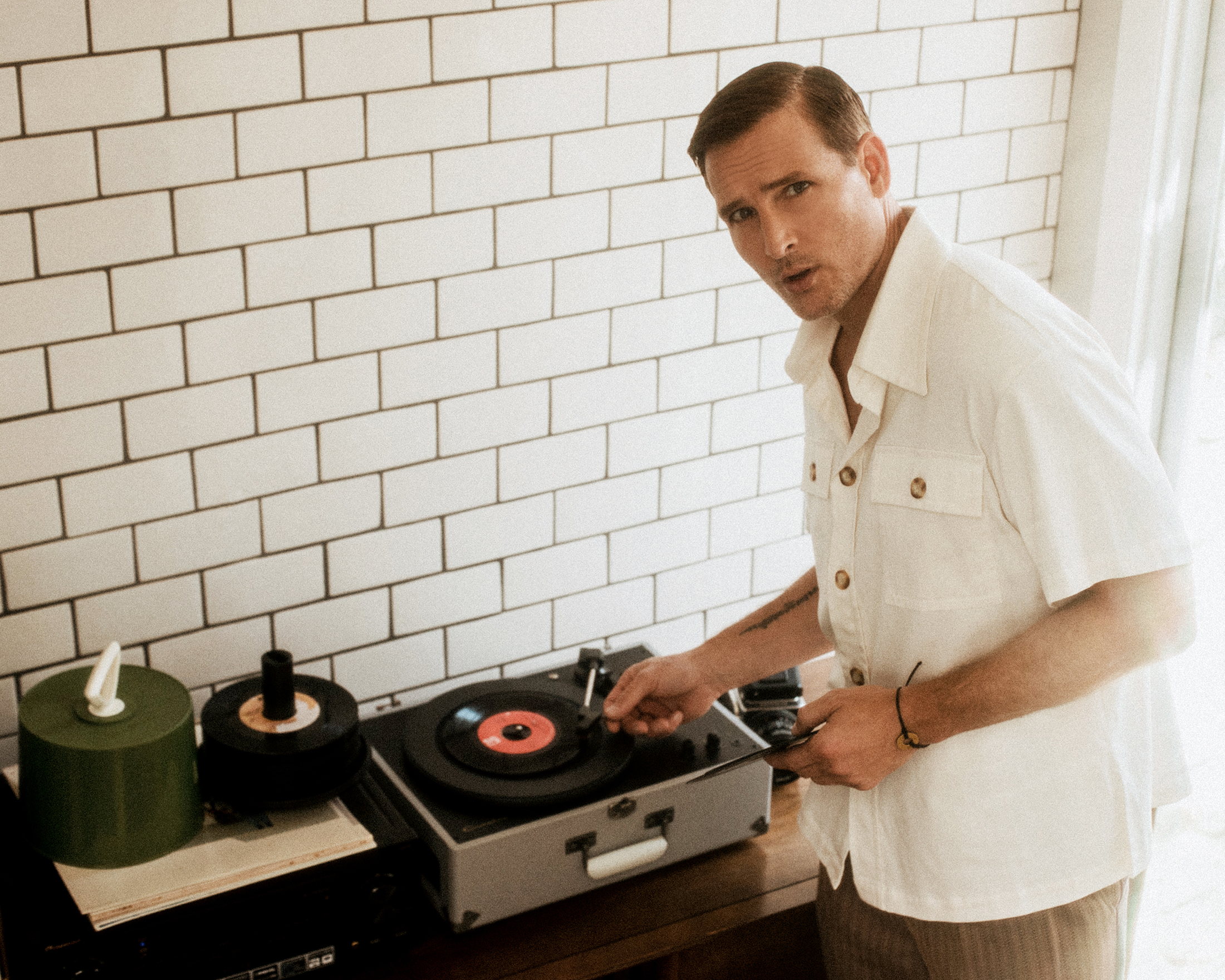
Angela Baidoo: The industry has changed exponentially since your days modelling for Versace, but as I see from the latest issue of Jon Magazine it is still something you love to do, what is it about modelling that you still find so engaging?
Peter Facinelli: Yeah, it’s always fun, I mean, listen, I spend my life behind a camera, whether it’s as an actor or taking pictures, there’s a mood and an energy that you have for each photoshoot, for each movie. So, you’re capturing that mood, whether it’s still photography, or moving pictures, and yes, the clothing always helps.
Like in period pieces, right now I’m doing a period piece so it’s 1917, this movie takes place in World War One and as soon as you put the clothes on, you feel like you been thrown back in time. And the clothes back then were so cool. It’s so amazing. I wish that would come back, right now it feels like the 90s are making a comeback.”
Angela Baidoo: So, 1900s or 1990s, what era would be your go-to in terms of fashion?
Peter Facinelli: I wish it was more 1919, early 1900s, and maybe it’ll come back because the clothing then was just so dapper.
Angela Baidoo: So, you love the formality of the early 1900s?
Peter Facinelli: Yeah, when you put them on you feel like a gentleman, and they just dressed well, like at one point my character goes out to farm some potatoes, and he’s dressed in black slacks, they didn’t have jeans back then, it’s just his best slacks. And their idea of a work shirt was just a white shirt that was easy to wash, but a white shirt was more dressed down. It’s funny, because now the white shirt is the more dressed up shirt.
Angela Baidoo: You have been known to take risks with your personal style, was the harness on the cover of Jon magazine your idea, or your stylists?
Peter Facinelli: No, that was a stylist idea. I just thought it was interesting, and fun, and a little risqué, but I’m open to trying things, otherwise clothes get boring. I think clothes bring out an energy, so just having that on just completely brought out a different mood, and I didn’t even know it was just an accessory piece, but I was willing to throw it on and try it.
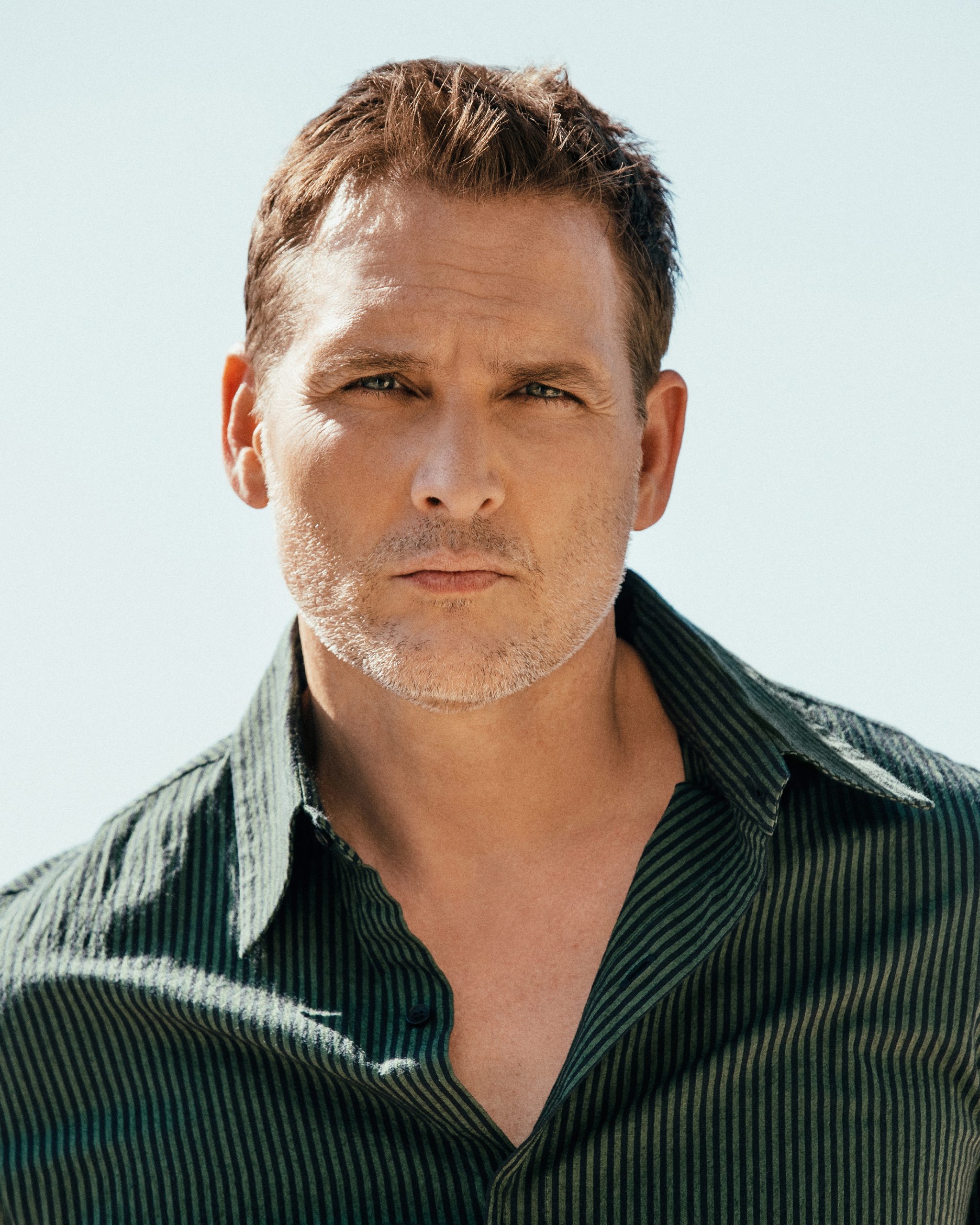
Angela Baidoo: Do you find your personal style is something that you like to experiment with?
Peter Facinelli: I mean, on a day-to-day basis, I’m more of a jeans and T shirt kind of guy, although I do like to get dressed up. When we were in quarantine, I missed putting on a suit. I think one day I just put on a suit, just for fun, and walked around the house, as I was living in my sweatpants. I just realised, when you get up in the morning, and you get dressed, it starts your day. Being able to pick an outfit for the day, sets the mood for whatever day you’re going to have.
Angela Baidoo: As you said you’re more of a Jeans and T-shirt kind of guy, but when it comes to red carpet events do you find that you take a few more risks?
Peter Facinelli: I try to take risks, what’s nice about going to events is when they give you a stylist, because when you have a stylist, then it opens you up to ideas, otherwise, where do you get ideas from?
Angela Baidoo: Is men’s fashion finally having its well-deserved moment in the spotlight? Because you’ve obviously got a lot of men experimenting – take Timothée Chalamet on the Oscars red carpet, in a women’s Louis Vuitton jacket and no shirt! Do you think that men are being a bit more creative with their sartorial choices?
Peter Facinelli: I hope so, because I feel like with women’s fashion, there’s so much more you can do.
But I do feel like men’s fashion has now opened up, men can wear whatever they want, even skirts, it’s nice to see that kind of openness in clothing. I mean I grew up with three sisters, and they used to dress me!”
It’s refreshing to see that there is no fine line between men’s and women’s clothing anymore, that you can have an amalgamation of what people would think would be a more feminine look, but it’s a mixture of both.
Angela Baidoo: Do you think the fashion industry will continue to be more open in celebrating individual style going forward?
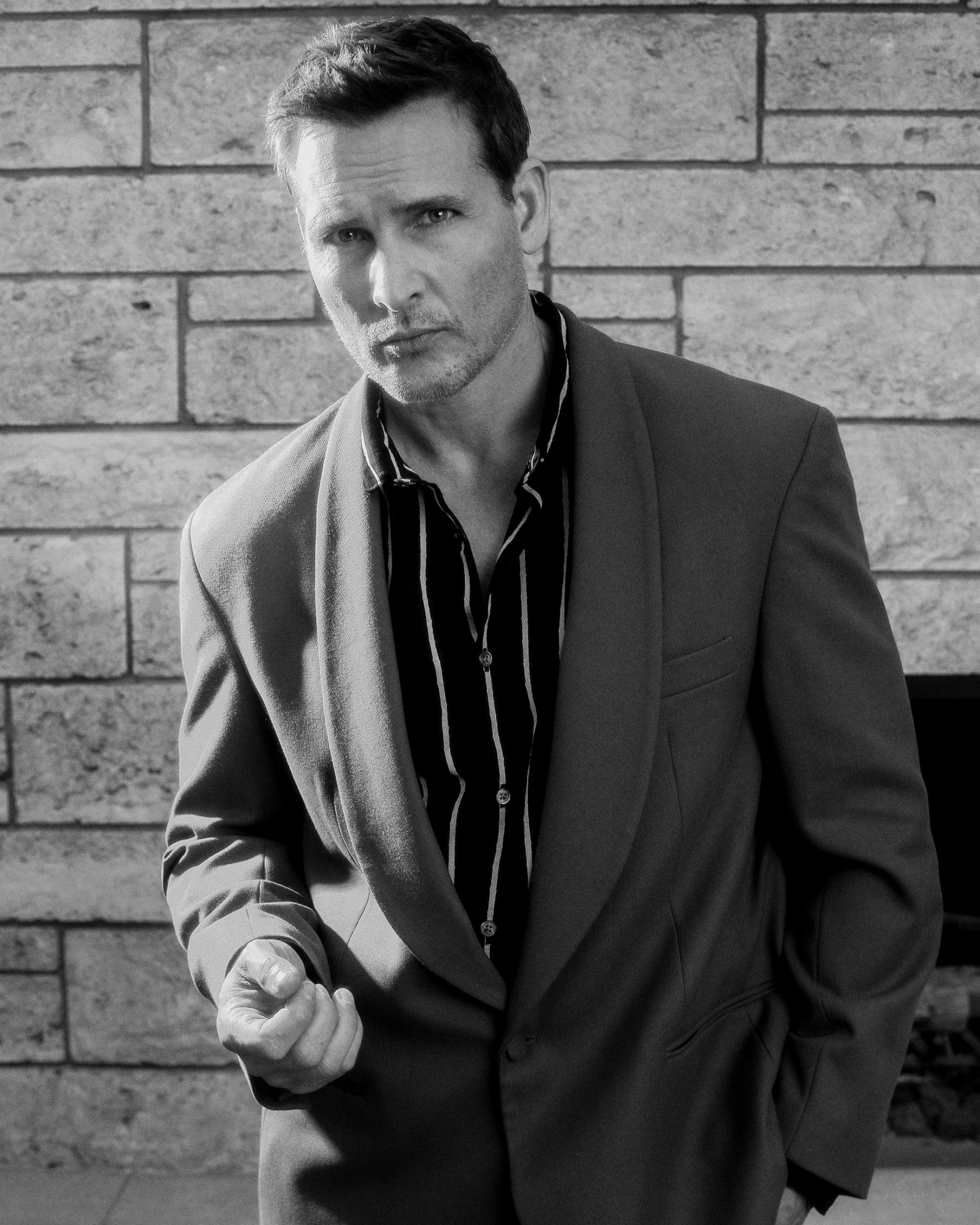
Peter Facinelli: I think it’s all open, clothes should make you feel comfortable, and I hope designers start to catch up to that, because they set the pace for things. But when I was doing this movie, Can You Hear Me? – which is a period piece – back then they didn’t have off the rack clothes, it wasn’t like one size fits all, you would get your clothes made, and so they’re very precious to you, because these clothes fit you and only you, and they were unique. I’d love to see that make a comeback, just being able to go out and get either vintage pieces or a mixture, I really like that I’ve been living in that world of early 1900s clothing.
It would be exciting to wear every period, as the 60s had a very specific look, the same with the 70s and 80s, I think what would be fun is to mix all the periods up. Taking something from the 50s and mixing it with the 1920s, and what’s funny is they always say if you hold on to your clothes long enough, they’ll make a comeback. I mean I wish I’d held onto my 90s clothes more, as their making a comeback now.
Angela Baidoo: You’ve worked as a writer, producer, actor, and director, having experienced life in front of and behind the camera, what have you found has been the most creative way for you to bring stories to life?
Peter Facinelli: Yeah, you know, I wish there was a different name for actor slash director slash producer, because at the end of the day I like to consider myself as just a storyteller. And each one of those is just a different way of telling a story. As a writer, I’ll sit down by myself and I’ll create this world, and it’s fun to write a script or a story because it’s almost like you’re playing God. You’re like ‘…and Tom gets hit by a bus’ and then you’re like, oh wait, I like Tom, so you change it to ‘…Tom nearly gets hit by a bus’. So, you can create these characters and live in that space, in that world. And then to produce, you take that world, and you share it with other people who come on board to help you lift that off the paper and make it a reality.
When you’re directing, it’s almost like you’re an architect taking that blueprint and now making the building. I really like directing because it’s a collaboration with a lot of different departments. I love actors, I love working with them, but then you’re working with the makeup department, and the costume department, I find picking out outfits for the characters is so important. It’s like when you’re directing it’s a 360˚ world that you’re in charge of, with a team of people that are helping you build it. Then as an actor, you’re playing that one role, you’re bringing that role to life, and your kind of breathing life into this one person, which is important too as you’re using your body, your speech, your words, all your senses, to create this one cog in the bigger wheel of the story.
So, one doesn’t necessarily serve the other and I don’t have to always be producer, director, writer. I’ve directed things that I haven’t written, I’ve produced things that I haven’t been in, I’ve acted in things I’ve directed, I feel like it’s whatever serves the story the most.
I kind of get more obsessed in how do I want to tell the story? And how do I service this story the best? And if it’s as a director then I’ll do that, if it’s as an actor or producer, I’ll do that, and if it’s an amalgamation of a few of them together, then I’ll do that.”
Angela Baidoo: Because you’ve got all those skills, is there an area that you’d like to focus on in the future, or your happy doing whatever services the story?
Peter Facinelli: Yeah, I think for me, it’s whatever services the story, I can’t imagine ever quitting acting fully and saying I’m going to hang up my hat because I enjoy it, I enjoy taking on those characters, but I also really enjoy directing. Then producing sometimes it’s just a necessity because I may be trying to get a great project that I found off the ground and saying, no, this is a really important story, it needs to be told. As a writer there are projects that I signed up for that I haven’t written, but then when I have time off, my imagination starts to run, and I think there’s a story here that I want to tell. I don’t know if I gravitate more towards one or the other, but for me, it’s mainly about the story, and how can I best serve that story.
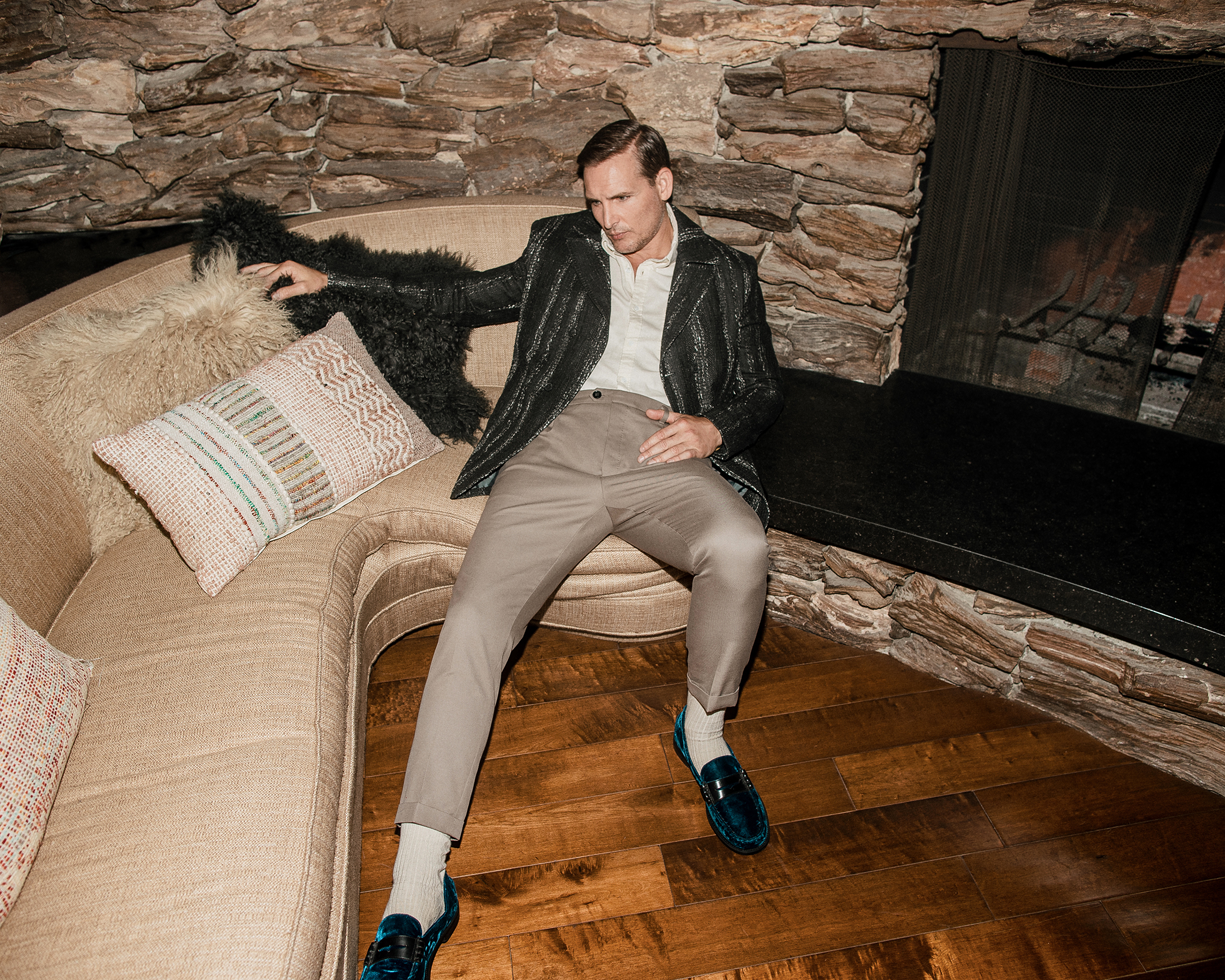
What’s fascinating is when you get to a certain place in your career where you’re able to put something together, then it’s empowering, because you’re giving jobs to people, you know, as opposed to going in as an actor. When I was younger in my career, I would always go to people hat in hand and say can I have a job? And now I’m at a place where I just want to create things that I’m passionate about, and then give jobs to people. When I’m writing and that gets made, I’m giving jobs to hundreds of people, which feels great, and I’m giving other actors opportunities to play in that space.
I recently produced a movie (The Unbreakable Boy), and we hired a fantastic cast, Zachary Levi was in it, and Drew Powell, and those are actors that I admire. So being able to bring something to life and then have the opportunity to give people I admire a job, it feels good when it comes together.”
Angela Baidoo: For your next project The Unbreakable Boy, what about the book initially resonated with you, was there a specific part within the story that you personally connected with as a father?
Peter Facinelli: Yeah, The Unbreakable Boy is a true story about a dad with an autistic son, and he wanted so badly to try to fix his son, in a world that sees an autistic child as broken, and he realised that his child was never broken. He was perfect the way he was, and there was a lot that his son did to heal him, as he was the broken one. I guess when I read it, I kind of fell in love with Austin, the little boy in it who’s autistic, because he just comes from a place of love all the time. When he was being bullied in school, most of the time, he didn’t even know he was being bullied, so, if someone’s trying to bully you, and you don’t react to it, then they can’t bully you, and he just reacted back with love, and the bully would then change because he wasn’t getting the reaction he wanted, and I thought, wow, that’s so powerful!
I want that out in the world because we should all be like that, we should all come from a place of love, and kindness. The way he viewed the world was, every moment was the best moment ever, and I used to say that to my kids, you know, today will be the best day ever. So, it’s a perspective that I felt was needed, as the world has been so heavy lately with COVID, quarantine, sickness and dying. I just wanted to have this story out there that was uplifting, something that people could walk away from and feel good. So yeah, I’m really proud of that film, because it’s just a feel-good movie.
Angela Baidoo: We definitely need more of that out in the world, for sure, and what do you think we can learn about resiliency from Austin’s’ story, especially, in the times that we’re currently living through.
Peter Facinelli: I mean, just that, to really lead with love, and it sounds cliché, but when somebody says something that hurts you, instead of leading with anger or frustration, if you can communicate back with love, I think it just gets you further.
It’s hard to do, I know it’s not easy but this story kind of reminds you, because Austin doesn’t have a filter everything comes out of him as love, it’s just beautiful to watch.
It also not reacting to things, we get triggered so easily, at least I do, and knowing that you have other options, you don’t have to respond or be triggered.
Angela Baidoo: What was it like working with Austin and his father? Did they have a lot of input in the project?
Peter Facinelli: Well, the dad is fantastic. I love him and I love Austin too, but his whole family’s is really kind, his mom, his brother, they were all really kind, and they’re from Middle America, so it just captured that Middle America slice of life. I still talk to the dad all the time, he’s funny and quirky, and he makes me smile, his son does too.
When I signed on to produce this with him, I said look, I don’t know how long it’s going to take to get this off the ground, but I know it’s an important movie, so if it takes me the rest of my life, I’m going to continue trying to get this movie made. Then it kind of took on a life of its own, like I brought it to a company called Kingdom Films, and they liked it. A script was done. Lionsgate came on board, and it was almost like the universe was taking it and bringing us along for the ride.
Angela Baidoo: The film, is also a celebration of perceived flaws, and in a time where perfection is upheld as aspirational, are we reaching a turning point, where individuality and self-expression will make a return to help us be more authentic in our own lives?
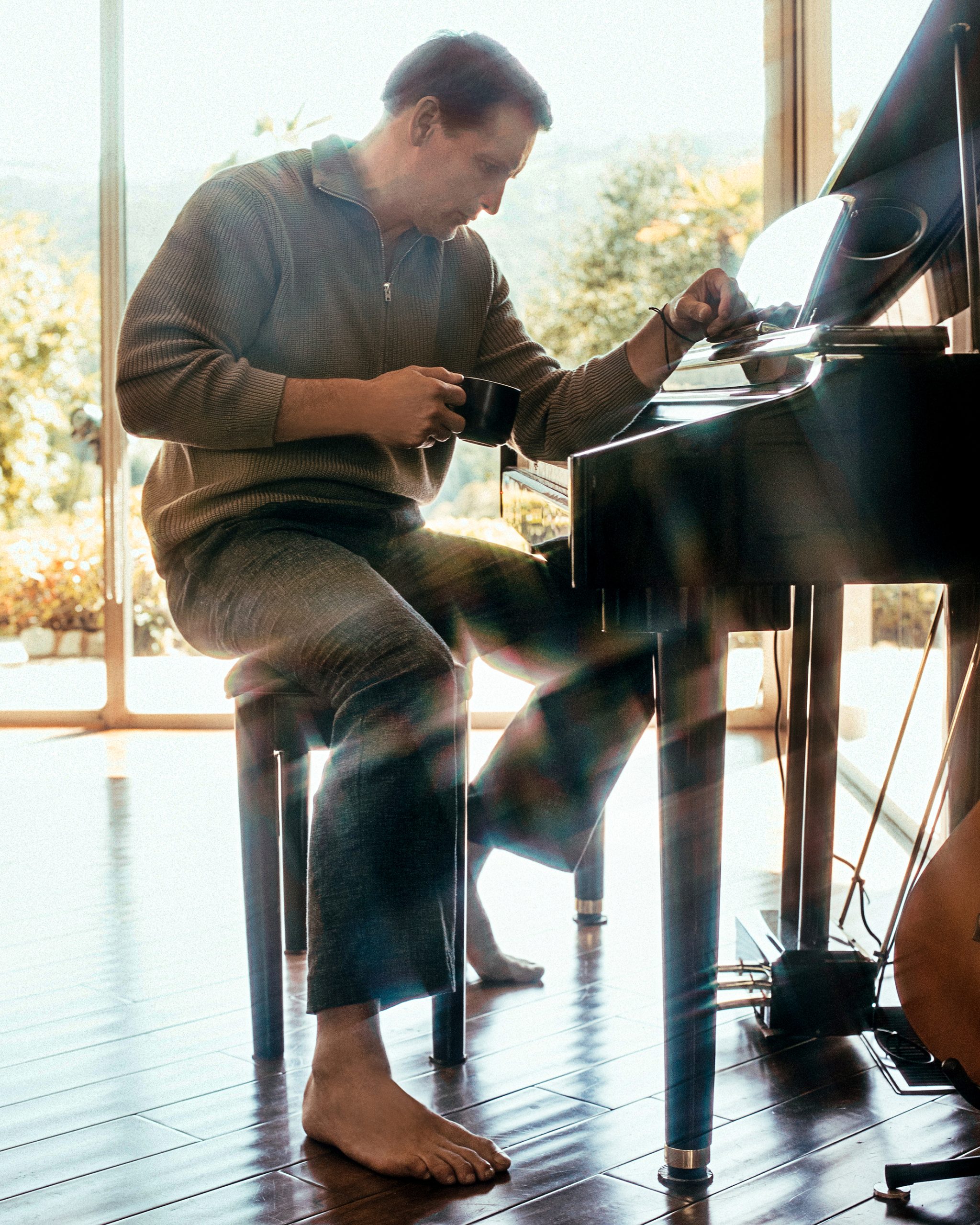
Peter Facinelli: Yeah, I’m very hopeful. I remember going to school and people would knock you for how you wore your clothes, and in this movie, Austin has this giant jester’s hat, and he loves this hat, and yeah other people might make fun of it, but he doesn’t care because to him, it’s like the best hat ever. I feel like people should live their life like, ‘Hey, I love what I have on’ and if someone’s making fun of it, that’s not my problem, it’s their problem.
Angela Baidoo: As a father of a daughter who is pursuing a career in fashion, has your perspective shifted on the next generation’s ability to enact change through activism, and simply doing the work.
Peter Facinelli: We’re getting to a place in society now where I think that this young generation really sticks up for themselves and each other, and their individuality. And it’s not cool to pick on somebody nowadays, like all of a sudden, you’re the uncool one for bullying, you’re the uncool one for coming down on somebody for what they wear.
Seeing that shift gives me hope, because people should support each other, and then my daughter who’s 15, I see that in her and her group of friends, whatever you’re wearing, however you want to live your life, gay, straight, bi, like they’re all supportive of each other, and it’s so beautiful to see.”
Angela Baidoo: You were once quoted as saying “…movies can bring groups of people together..and anytime something can bring people together in a positive way it’s a great thing” do you think we will see a return to the magic of the movies as a way to bring people together again?
Peter Facinelli: I mean, I don’t think movies will go anywhere, before movies there were plays, and then before plays, there were people sitting around a fire and just telling stories. So, I think how we tell those stories will always adapt and change, going from fireside stories to Greek plays, to silent films, and then Techni-colour films and television, now we’re into platform changes with streaming services, and that’s broadening the number of stories being told. It’s hard to keep up because there’s so much content, which is wonderful. But I think the way we watch films might change, maybe in the future, it’ll be more augmented reality, you put your glasses on and you become part of that movie, right? Watching the Titanic and actually being on the ship! Yes.
I don’t think we’ll ever stop telling stories because I remember reading an article once where somebody said, Art doesn’t seem important, right? On a day-to-day level, when you’re just going into work, maybe not so much, but when you have a tragedy in your life, then we turn to art because we’re like, oh, other people have also experienced that, and it helps you get through it and heal. So just taking a movie like The Unbreakable Boy, and watching how Austin deals with life, and then watching how the dad deals with his son and learns from his son. You take that and you grow as a person by watching this movie, and you hopefully apply some of that to your life.
There’s so much to it, because there’s so much of life that you just want to tune out, to escape, so you get to tune into something else for two hours and disappear, but there are also films that can help you grow, and The Unbreakable Boy is one of them. So yeah, I hope that we get to a place where we continue making these films, and theatres come back to life, because it’s a communal experience, you know when you’re sitting in an auditorium with other people and that laughter hits, it’s infectious. Even when there’s somebody that’s in a sad moment, you can feel the pain in the auditorium or theatre, and that energy is captured with the community when you’re going to the movies.
So, I hope that it comes back in full effect.
